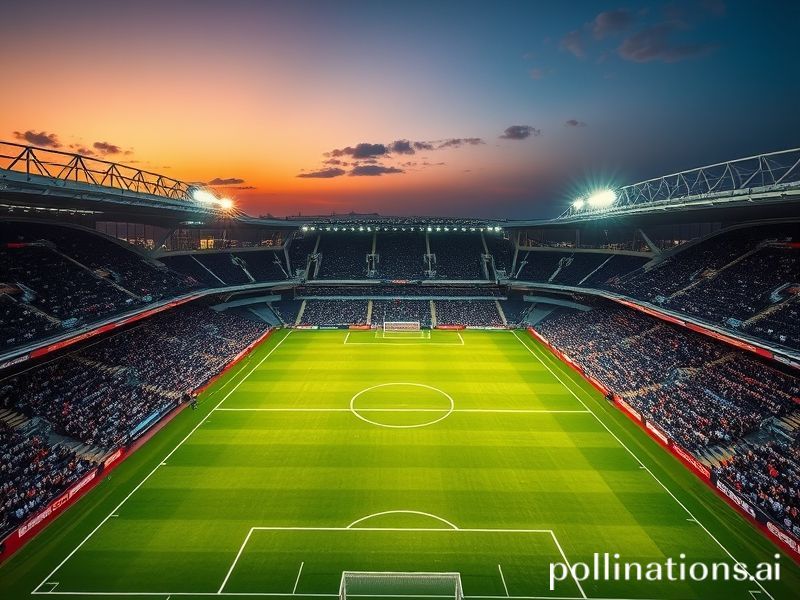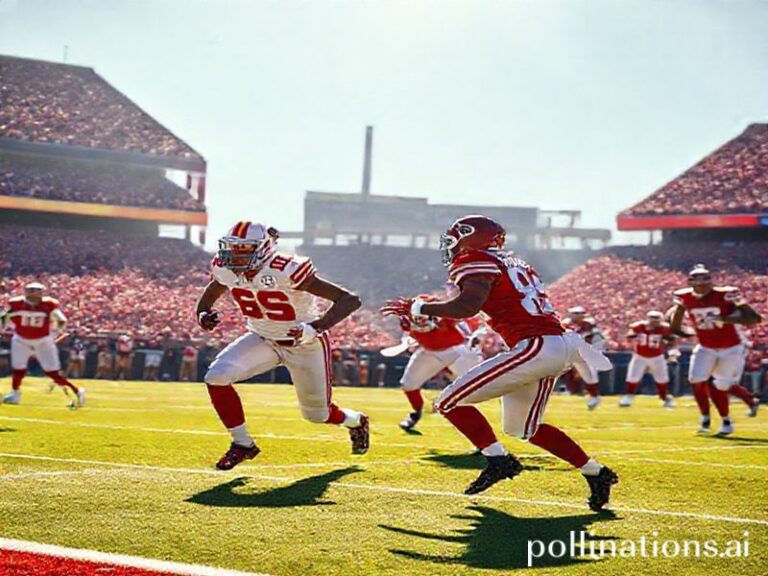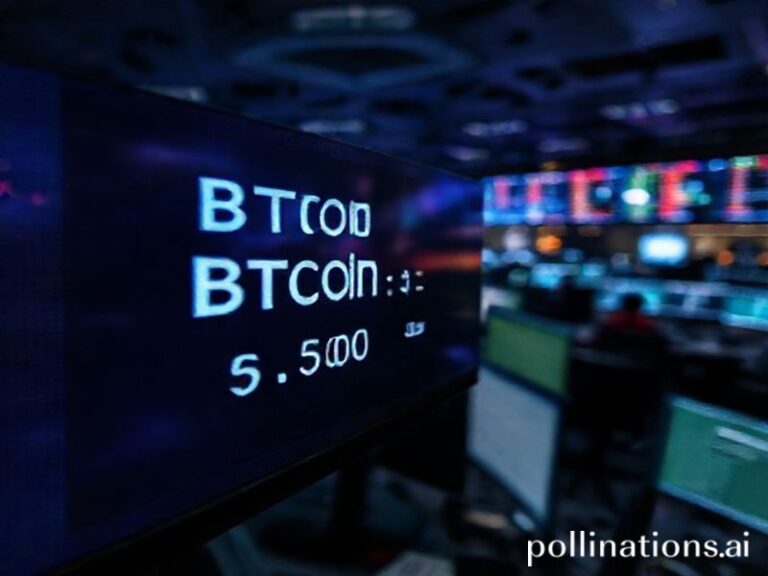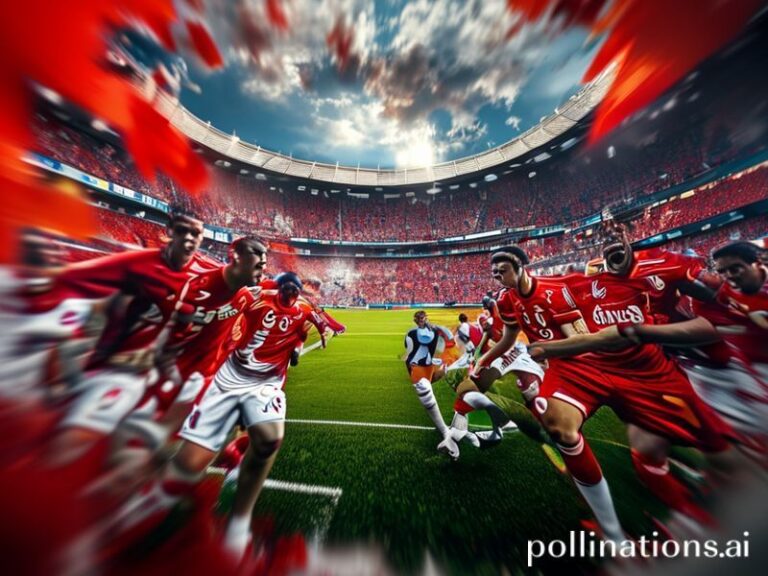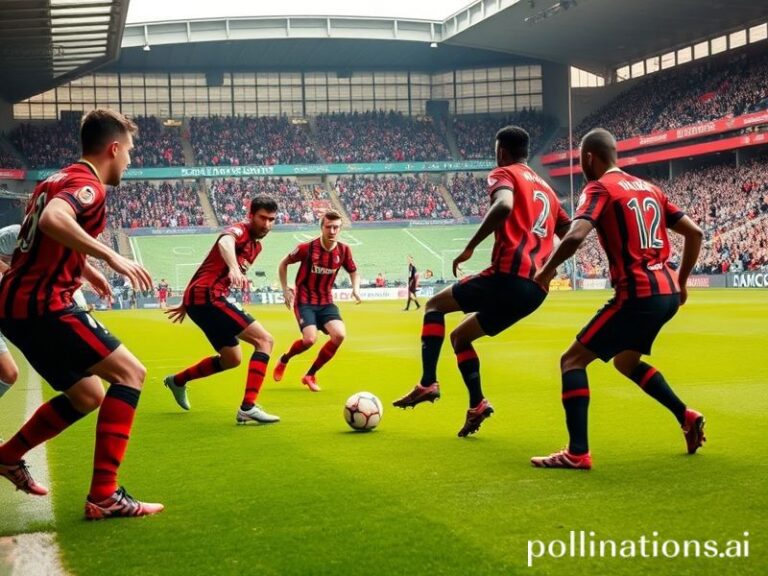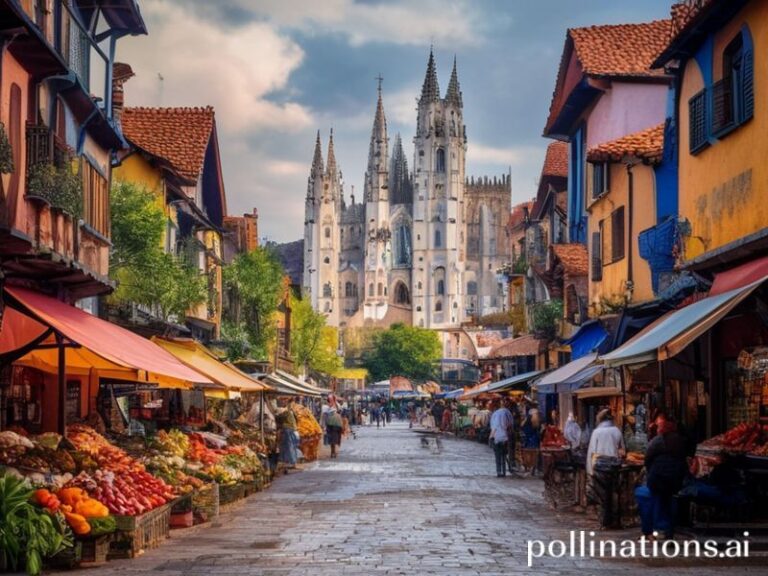Tottenham’s £1.2 Billion Megachurch: How a North London Pitch Became the World’s Newest Altar to Late-Stage Capitalism
The Colossus of North London Has Arrived—Now Let’s See Who Notices
By Diego “Match-Day Malthus” Serrano, filing from the global buffet of existential dread
Haringey, London – Somewhere between the artisanal coffee concessions and the 65-metre bar that could hydrate a medium-sized nation, Tottenham Hotspur Stadium yawns open like a titanium clam that swallowed a Swiss Army knife. It is, depending on your mood, either the most optimistic building erected in Europe since the Treaty of Rome or a £1.2 billion reminder that late-stage capitalism has finally learned how to do kick-offs. Either way, the rest of the planet is rubber-necking.
From Singapore to São Paulo, the new ground has become a Rorschach test for what the world thinks Britain still is. East Asian investors see a cash-gushing cathedral of naming rights and LED ribbons. American hedge-fund tourists admire the retractable pitch as proof that England can finally multitask. Meanwhile, European Union officials—those with time between existential crises—note the stadium’s retractable grass tray and mutter that even lawns are now detachable, just like their own post-Brexit trade deals.
The numbers are almost indecent. Ninety thousand pints of beer can be dispensed at halftime, which is roughly the weekly GDP of a small Balkan republic. The South Stand alone could seat every accredited war correspondent still alive today, with space left over for their cynicism. No fewer than 1,800 Wi-Fi access points ensure that every fan can upload a slow-motion clip of their existential despair the instant Harry Kane mis-hits a volley. Connectivity, after all, is the opiate that replaced religion—and the collection plate is now contactless.
Architecturally, the bowl is a polite middle finger to the rest of the world’s sporting venues. While Qatar builds air-conditioned mausoleums and Los Angeles staples another LED screen to the side of a freeway, Spurs have opted for something almost… European? There are brick facades that nod to local sweatshops of yore, and a micro-brewery whose hops are allegedly sourced within a 15-mile radius, because nothing says “global brand” like parochial beer. Even the NFL—an organisation that normally treats foreign soil like a rental car—has agreed to a ten-year sleepover, proving that American football can be exported as long as the locker rooms are large enough for egos and the occasional justice reform debate.
But the stadium’s real genius is geopolitical camouflage. On match days, it projects a raucous, inclusive carnival; on non-match days, it hosts corporate summits where men who look like failed Bond villains pitch blockchain start-ups to men who look like successful Bond villains. The same escalator that carried a seven-year-old in a Son Heung-min shirt at 3 p.m. will, by 7 p.m., transport a defence attaché to a discreet reception sponsored by an Emirati sovereign wealth fund. If you listen closely you can hear the soft clink of soft power being refilled.
This is why the global south, chronically under-supplied with decent stadia and over-supplied with IMF conditions, watches through a cracked smartphone screen and wonders whether development banks might one day fund a 62,000-seat arena in Maputo that doubles as a hurricane shelter. The answer, of course, is no—unless Mozambique qualifies for the Champions League and discovers shale gas in the penalty box.
Meanwhile, back in Tottenham, local residents—those who haven’t been priced into Enfield—can purchase £17 hot dogs whose artisanal lineage is longer than most royal bloodlines. Gentrification now has its own stand number: 128, just past the skybridge where influencers queue to take selfies with the bronze cockerel, a bird that looks increasingly like it’s calculating compound interest.
Will the colossus turn a profit? Probably. Will it bring peace to the Middle East? Only if they schedule the Champions League Final between Tel Aviv and Tehran. But as the floodlights flick on over North London, bathing the sky in that peculiar LED glow that makes everyone look mildly hungover, one truth is universal: human beings will always find a way to build a temple to something, fill it with beer, and argue about who should be sacrificed next. Tottenham Hotspur Stadium is simply the newest, shiniest altar. The gods haven’t changed; they’ve just diversified their revenue streams.

